Biodiversity
The Burton and District Beekeepers' Association (B&Dbka) is dedicated to increasing awareness of conservation of all bee species native to the UK through the means of training and education. In 2020, B&DBKA was awarded £5,500 to help create a training apiary and a wild flower meadow alongside to help with these aims.
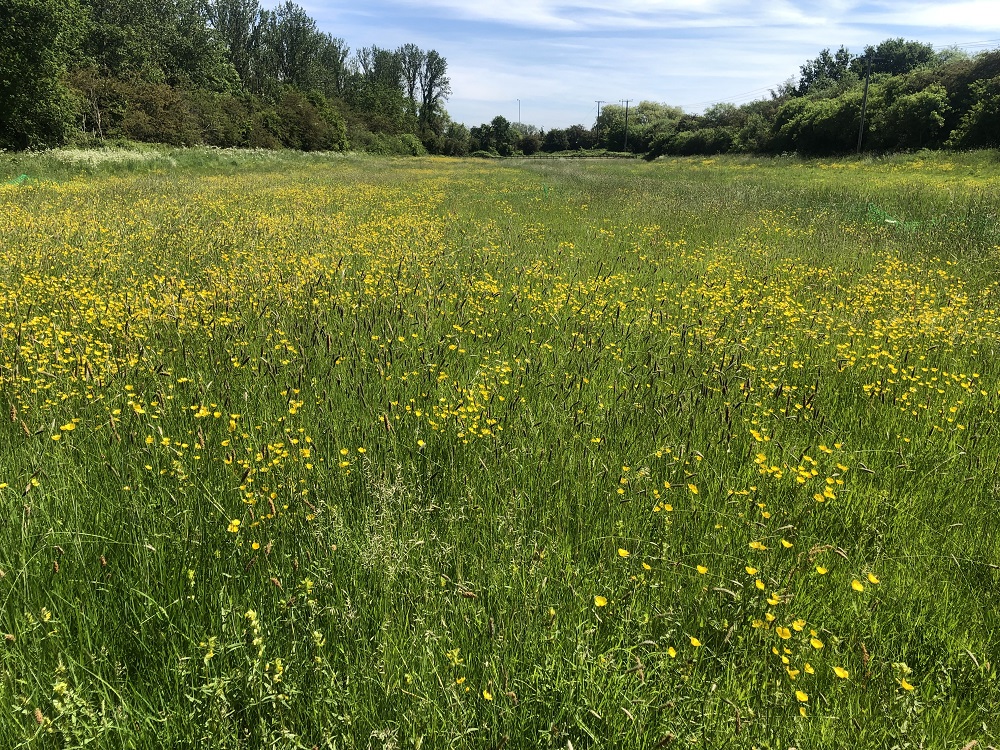 The neighbouring field, belonging to the RSPCA, was rough grass around which the RSPCA exercise the animals in its care. The area is also used by many local walkers.
The neighbouring field, belonging to the RSPCA, was rough grass around which the RSPCA exercise the animals in its care. The area is also used by many local walkers. The association was given permission by the RSPCA to plant a wildflower meadow in this field. The wild flower mix was obtained from a small UK company with strong credentials in the fields of pollinators and native meadow plants. The wild flowers used in the mix, including both annuals and perennials, have been shown to benefit the bees, butterflies and other pollinators.
The PEBBLE fund also funded the establishment of an orchard within the training apiary consisting of:
- nine step-over apple trees
- four step-over pear trees
- nine cordon apple trees
- six cordon pear trees
- five cordon plum trees
- two cordon damson trees.
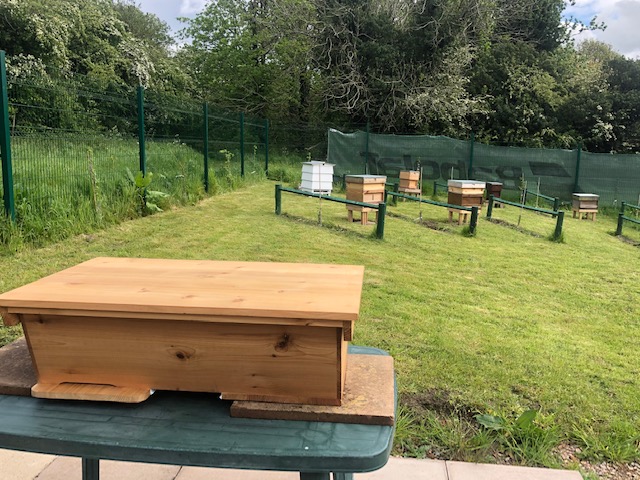 The group has also purchased a number of different hives, some useful for different aspects of beekeeping, others to teach different ways of keeping honey bees. In particular, the top bar hive and long hive are good for people with mobility issues or problems with lifting, as there are no heavy boxes to lift and turn. Both are at a lower level so can be managed by wheelchair-using beekeepers.
The group has also purchased a number of different hives, some useful for different aspects of beekeeping, others to teach different ways of keeping honey bees. In particular, the top bar hive and long hive are good for people with mobility issues or problems with lifting, as there are no heavy boxes to lift and turn. Both are at a lower level so can be managed by wheelchair-using beekeepers.
The association began the season with four colonies of honey bees, three of which were building cut outs in 2020. With swarm control and splits there are currently seven colonies. This is likely to change still! Three colonies have already been given away to recently trained beginner beekeepers.
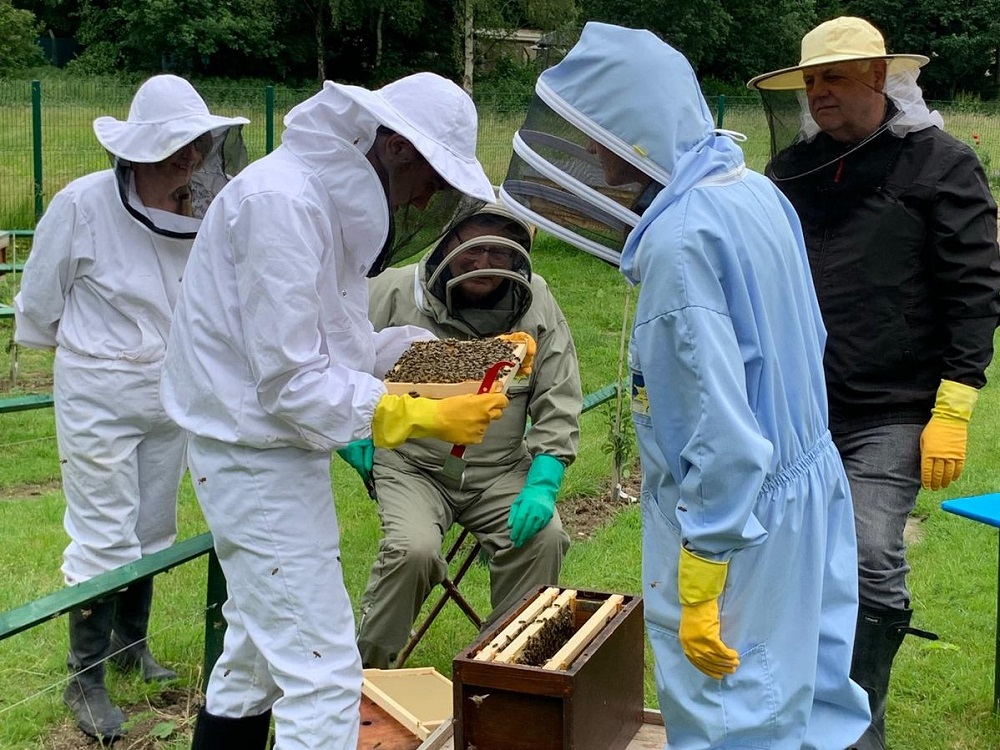 A second theory course has just been completed, also compliant with COVID-19 restrictions, the practical sessions again taking place at the apiary.
A second theory course has just been completed, also compliant with COVID-19 restrictions, the practical sessions again taking place at the apiary.A third course, due to high demand, may hopefully run without restrictions in August 2021.
The association supports new beekeepers as much as possible, many now having got their first colony of bees. Training and education will hopefully resume fully soon with regular ‘live’ monthly meetings, although the association also held Zoom meetings with invited speakers through COVID-19 restrictions. These were free to attend and open to members of other beekeeping associations.
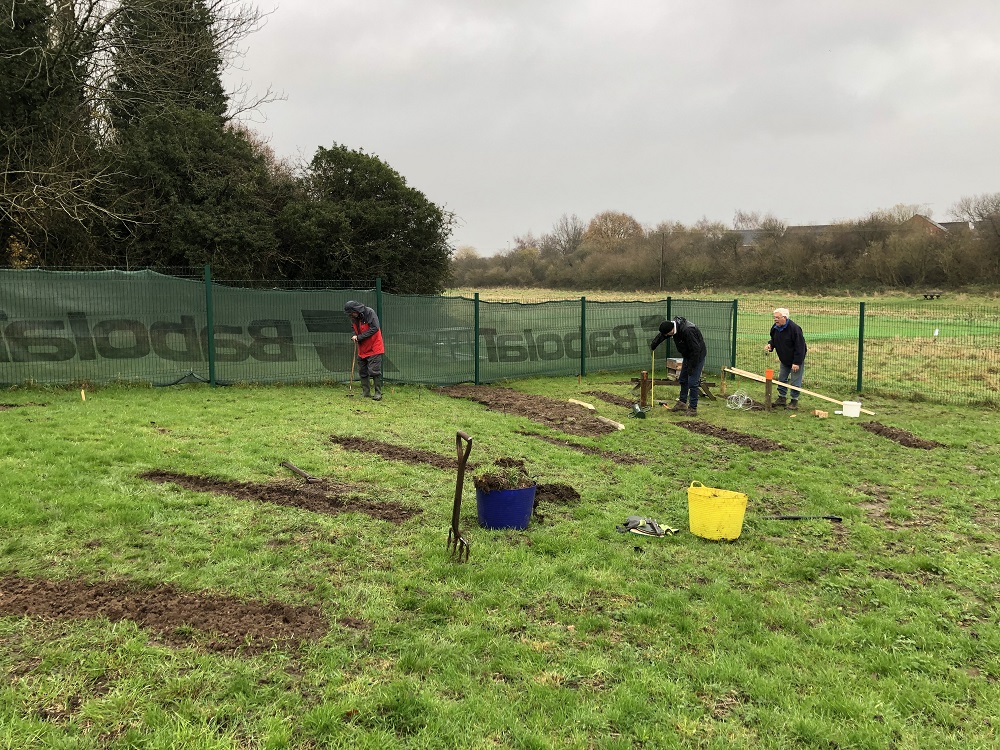
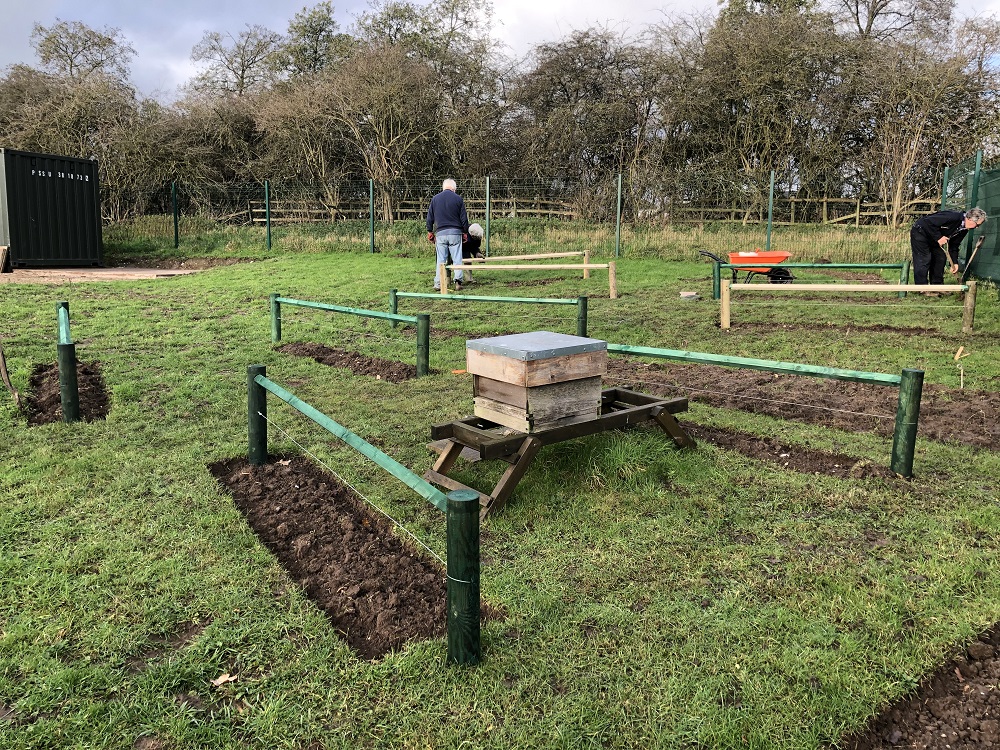
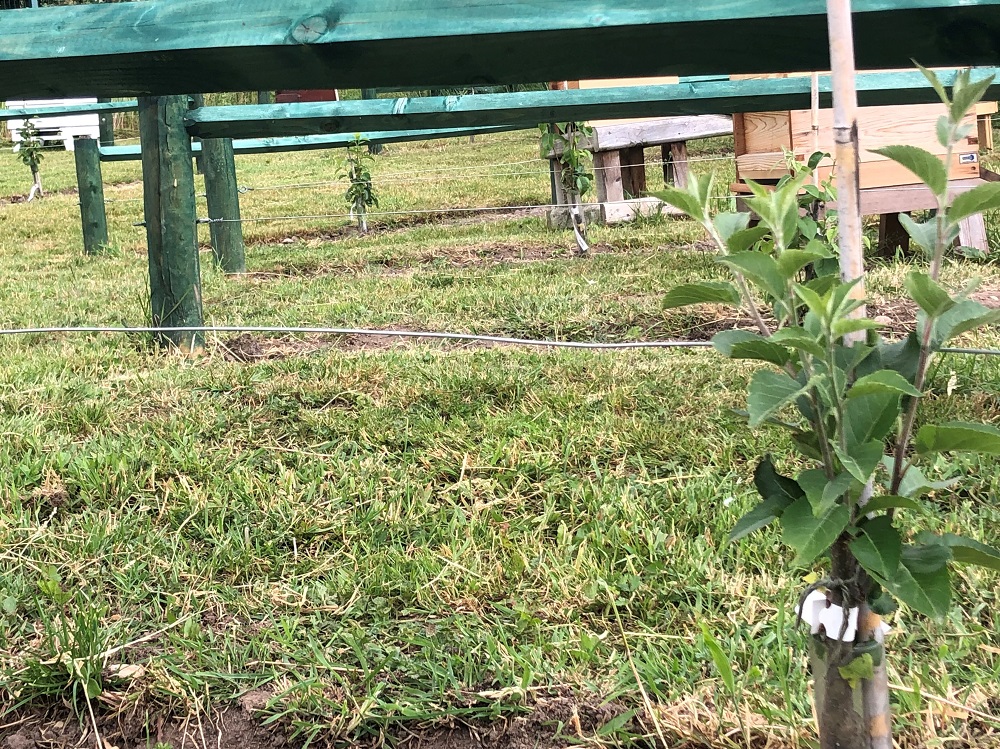
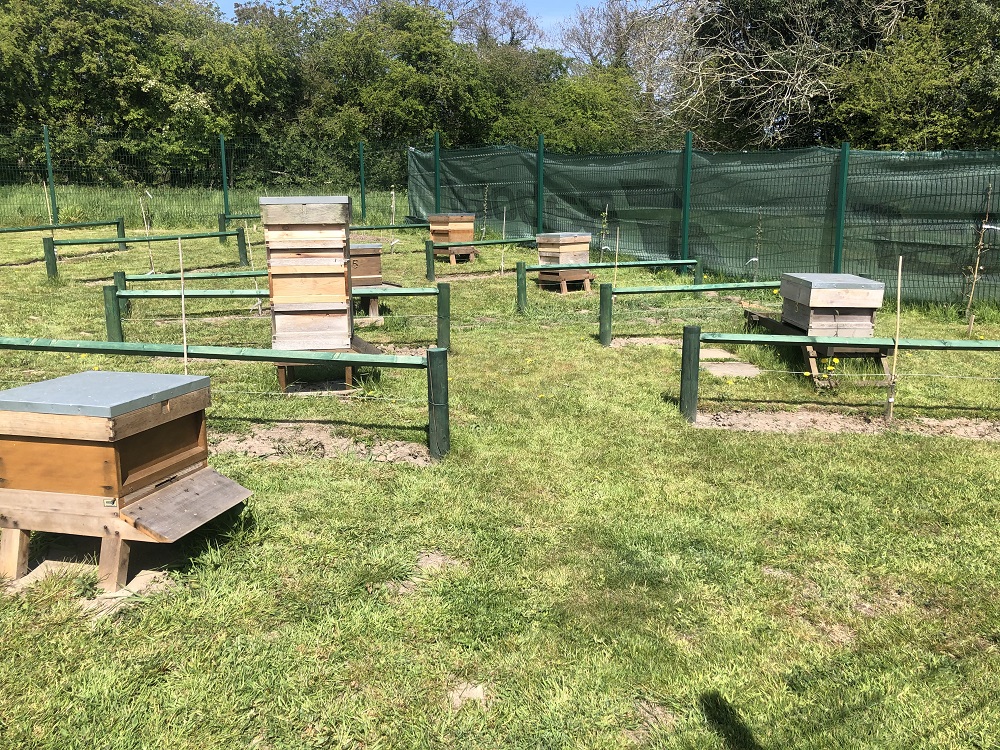
Burton BKA training apiary
Find out more about the training apiary on the Burton BKA website

Posted: June 2021


